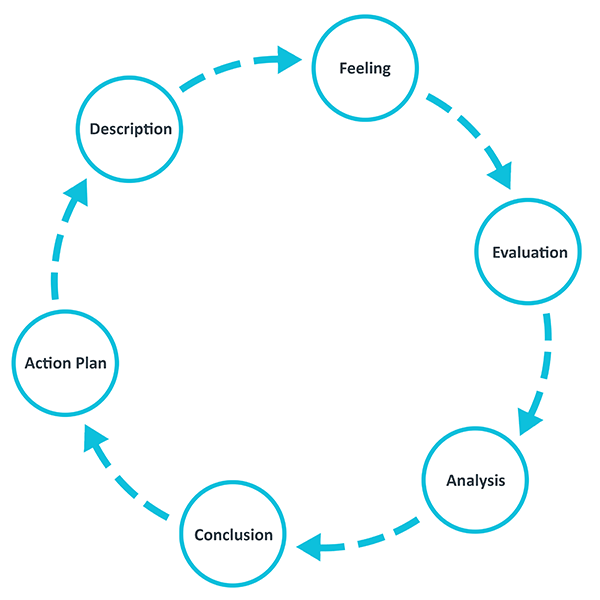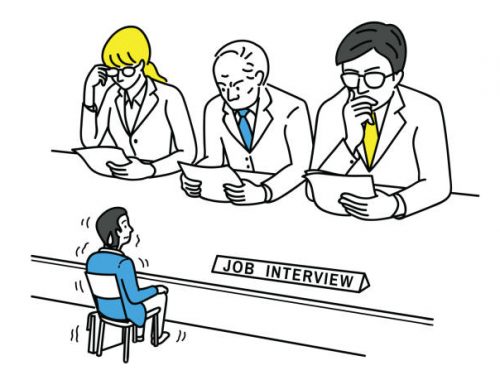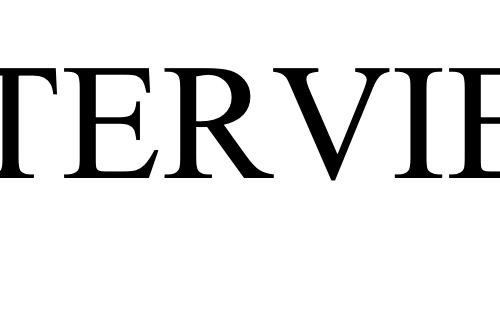Interviewing for a Clean Break

Introduction
I’m going to be completely honest here- I do NOT interview well. I have never interviewed well, even though every job interview I’ve done from the time I was eighteen, I’ve managed to somehow do great in and land the job; though to be fair, they’ve all been entry-level, barely liveable wage jobs back home in America, and most of the time, the businesses often hired anyone who applied, because there was no real skill involved in the job itself.
So upon hearing that we were going to do Simulated Interviews in front of our peers in our respective courses for this semester, I immediately started panicking. It didn’t help that at the Drama meeting the day after the general class about interviews, I spoke up about wanting to perform after graduation, and was promptly shot down, which is very understandable. So after a lengthy discussion with Mark, I went in search of a possible job that I would be able to use for the interview, that had what was both required for the interview, and would semi-fall in line with my theatrical-driven interests.
Discovering a Position for Creative Assistant
I spent a little over four days skimming through listings on job vacancy websites that had to do with Theatre Outreach Programmes, and came up empty; after scanning through several other vacancy websites, I came across a listing for a “Creative Assistant” at an all-women’s theatre company based in London called Clean Break.
After reading through the listing, I went in search of the website of the actual company on Google, and read up on the company and what exactly they do. I was surprised to discover that they work with women who have been released from prison, as well as women who are still in prison, through community theatre workshops and projects; upon reading through job listing, I decided that it would be a good fit for me, especially since the listing stated that they would like the person applying to have some form of dramaturgy or creating theatre experience.
Preparing for, and going through, the Interview
I spent the coming days brushing up on what Clean Break does, what the position required and worked on practicing answering questions in front of the mirror. I even ended up getting a couple of my flatmates involved, who asked me mock questions to see how I responded; they did continuously point out that I continuously stuttered and had a tendency to fidget, but said that I shouldn’t be nervous, and it was probably just nerves. In the days before the interview, I did read through How to Prepare for an Interview, in the hopes that it would help me to narrow in on specific questions that might come up, but specifically on what the employers or company was looking for, in regards to my work background and experience and how it could relate to the offered position.
I chose to look at the Gibbs’ Reflective Model in regards to this interview, because I felt that it possessed the best cycle that I could use to evaluate my interview. This helped me to better understand that the interviews would be conducted by a small group of my peers- others in the course that also had interests in production. Even though it would be conducted by my peers, and I’ve known them for three years, that did not take away my anxiety on the day of, and if anything, made it worse.

On the day of the interview, I kept going over my answers again and again, even though I didn’t know what questions I would be asked. My basic evaluation of the entire process was that doing mock interviews with my peers was a double-edged sword; I know these fellow students, they are very close friends of mine, but they were also complete strangers, in the sense that I did not know what exactly they would ask me, or how my answers to their questions would reflect their responses.
I was left to give my interview last, and with each interview that came before, I gave myself a few minutes to analyse the entire process, from the start. At first it was very chaotic, but once we got into our groups, things began to make more sense. One of the more difficult aspects of the interviews, was that they were all happening at the same time, within our five little groups of interviewers/interviewees. At first, the multiple voices were distracting, but as the interviews went on, it became almost calming to hear the continuous buzz of questions being asked and answers being given.
Conclusion
The main conclusion I took away from the interviews, was that though I was prepared for the interview with my research and answers, personally, I did not feel prepared enough. I also was able to reflect that my anxiety came out during the interview, because I used more fillers, ‘um’s’ being a common one, and very prolonged silences than I would if I were just normally talking to someone normally; I also had a tendency to start fidgeting and then stop during the interview as a way of releasing my anxiety. I did learn in my feedback, that despite my nervousness, I did give good, strong examples of past experiences that could relate to the company, and that my knowledge of the company’s background and what they did was impressive.
Overall, the interviews were actually a fairly good exercise; it helped to show that even despite my nerves, my preparedness paid off. Being able to take the time to evaluate and analyse the situation also helped me to understand what I needed to work on and what was already strong. I still believe that I do not interview well, but it is getting easier.
You May Also Like

Simulated Interrogation
18 February 2022
The interview may have been simulated, but the anxiety was real!
21 February 2022
